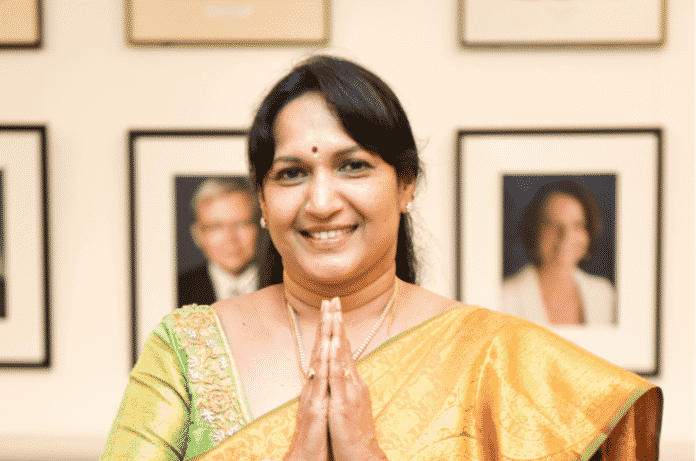What convinced you to join the party of your choice?
Ever since I migrated to Australia over 30 years ago, I always voluntarily worked and chaired several community, cultural, immigrant, women, temple and subcontinent associations. As a result, I am fortunate enough to liaise with politicians and policy makers of all parties. I soon realised the policies of the Australian Labor Party towards multiculturalism and protecting the vulnerable communities are well aligned with my own values and beliefs. That’s why I joined Australian Labor Party, to represent our community and groups.

What strategy did you use to campaign for votes in the election?
My strategy to get elected is based on party back up and word of mouth campaign. I am hoping many community members, who know my work and encouraged me to go into politics, will help me in promoting among community groups, friends and relatives. My campaign emphasis is that this is an opportunity for the community to show our strength and have our own
representation in the upper house. While serving in the community, I have a large network of volunteers and we all are making every effort to win the votes.
What are the three main changes you wish to make if you are to be elected?
My policies will be central to enabling the first generation migrants to be inclusive and participating with the mainstream policies and multicultural NSW; a “Fair Go” for socially disadvantaged groups and immigrants including parents of immigrants, and better public education, free healthcare and socially responsible environmental protection for the benefit of all future generations.
Tell us a bit about your background?
I migrated to Australia over 30 years ago from Andhra Pradesh. Like any other woman, I helped my husband build a successful family business and raised two happy children, both becoming useful members of society, a Cardiologist and a Chartered Accountant. Community service has always been my passion. I believed from a young age that “only a life living for others is a life worthwhile”. Keeping that motto in mind, I became an elected student leader at university in India.

Community and migrant issues are always at my heart and I am fortunate enough to devote my life for these actives without the need for monitory earning. I worked as Vice Present and President of Telugu Association, and later became President of United India Association (UIA). During this period, I conducted several activities to promote the community relationship.
between India and Australia in social, cultural and business areas. In my current roles as president of Global Women’s Network Inc and Vice President of Subcontinent Friends of Labor, multicultural advisor for State and Federal MPs, I am working for women’s empowerment and participation in politics for better policies.
What do you think are the pressing needs of the Indian Australian community?
The Indian-Australian community is extremely diverse made up of many people who have only recently arrived, right through to those that are well established and have been here for many decades. Indians are the fastest growing community in Australia and we have reached beyond the 500,000 mark. Even though the community is now more proactive, dynamic and skilled, there are several issues being faced by the community. I think collectively as a group, we yearn for a voice on the political stage that fosters the needs of our community.
Who are you inspired by?
There is no specific individual or group, but I really get inspired by and admire those countless individuals who work voluntarily – day in and day out, without the need for name and fame – for community activities, whether related to social, cultural or religious ends.
There is a lot of disillusionment with politics and politicians in current times – what needs to be done to change that public perception?
It is no surprise that the public is disillusioned with the current state of affairs in politics. Like a turnstile we see leaders come and go, constantly pandering to the polls or self-interests rather than the interests of their constituents. We need courage and we need stability – the courage to stand up, be ourselves and let the voices of our community be heard, with the stability to ensure that we can see projects through to fruition.





